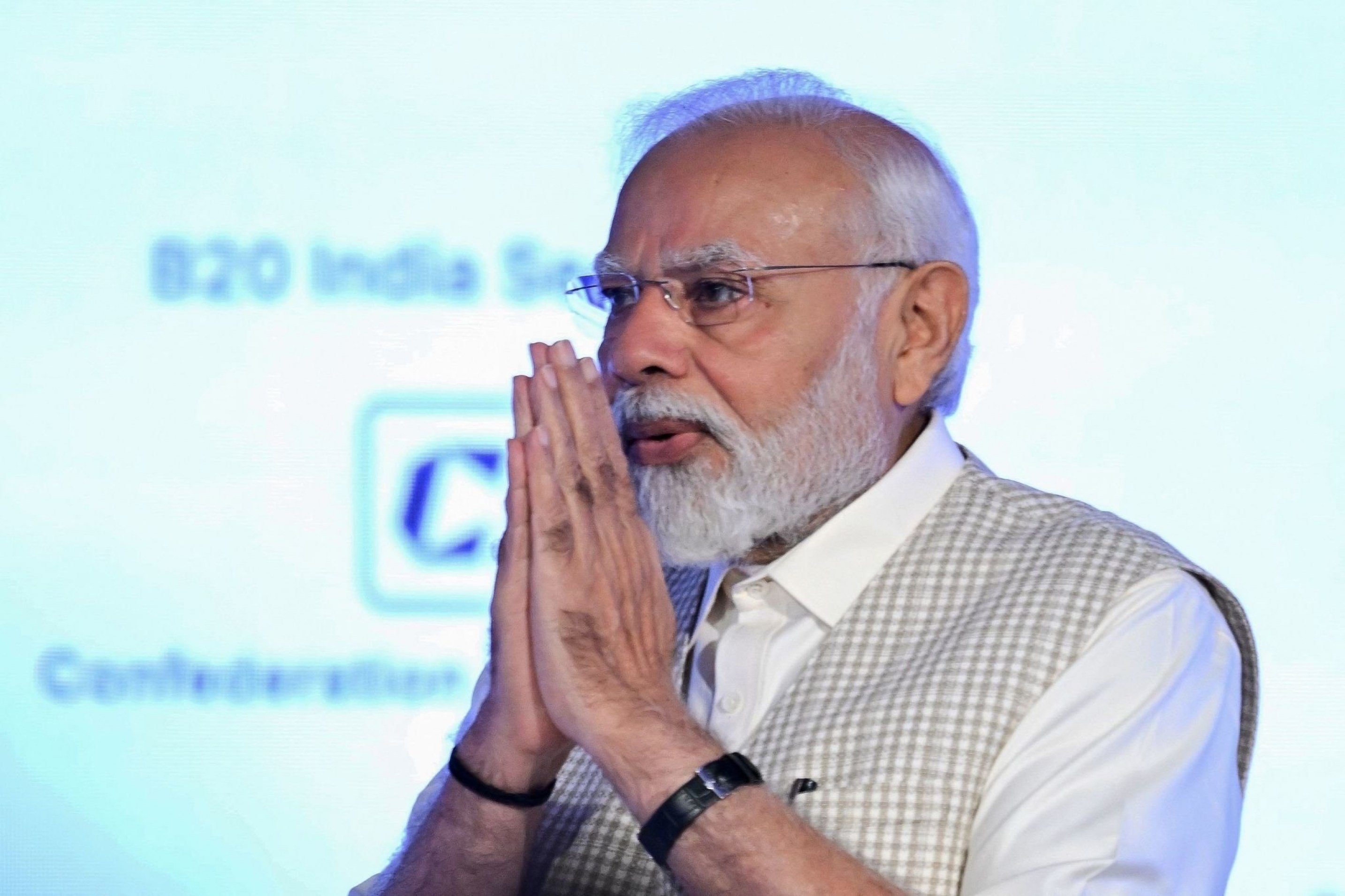Modi warns of colonialism if REE protection models are not developed
Narendra Modi warns against the emergence of neo-colonialism due to the unequal distribution of vital minerals necessary for energy transition.
-

India's Prime Minister Narendra Modi prepares to leave the venue of the third day of the three-day B20 Summit in New Delhi, India, on August 27, 2023 (AFP)
Indian Prime Minister Narendra Modi has highlighted the potential emergence of a "new form of colonialism" unless nations possessing vital minerals consider their role in protecting their extraction and use, given the ongoing race among multinationals to secure resources crucial for achieving energy transition objectives.
Speaking at a Business 20 summit in New Delhi, Modi emphasized the challenges related to critical materials such as rare earth elements (REEs), which are abundant in some regions while entirely absent in others, despite their universal importance.
He cautioned that if countries possessing these resources fail to view their responsibility in a global context, it could inadvertently promote a modern version of colonialism.
"The ones who have them, if they don't see that as a global responsibility, then this will promote a new model of colonialism. This is my warning," Modi said.
These remarks come in a context where the availability of REEs necessary for the shift towards more "environmentally" sustainable energy sources remains uncertain due to various hurdles, including an uneven supply chain of resources, according to Reuters.
Addressing an audience of international business leaders and industry experts, Modi expressed India's potential to establish a robust and dependable supply chain, drawing a contrast with the vulnerabilities exposed by the breakdown of the pre-COVID-19 supply chain during critical times.
In the broader context of supply chain diversification, noteworthy agreements were announced in June between the United States and India across diverse sectors, including technology, minerals, space, chips, and defense. These agreements were unveiled during Modi's visit to Washington, signaling collaborative efforts between Dehli and Washington to fortify the REEs supply chain from Chinese retaliatory policy.
China is one of the largest extractors of ready-for-use REEs. The Chinese sector accounts for 60% of rare earth mining globally, 85% of rare earth processing, and 90% of the high-strength permanent magnets industry. Recent actions, such as restricting exports of certain minerals for applications like computer chips, which comes in response to US sanctions on China's tech industry, have raised concerns over the strength of the global REE supply chain.
REEs are used in a large array of high-tech products including wind turbines, hard drives, electric vehicles, and smartphones. The US military is also highly dependent on these materials to produce its hardware and machinery. The production of an F-35 fighter jet, for example, requires 417kg of rare metals.
Read more: Beijing to ban export of rare earth metals in response to sanctions

 3 Min Read
3 Min Read








